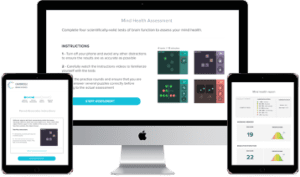
**1. Initial Assessment:**
– Conduct a comprehensive assessment by our multidisciplinary team of occupational therapists, physical therapists, and psychologists to evaluate the patient’s physical, cognitive, and emotional status post-motor vehicle accident.
– Review the patient’s driving history, pre-accident driving abilities, and any specific concerns.
**2. Physical Rehabilitation:**
– Design an individualized physical therapy program to address injuries or physical limitations resulting from the accident.
– Focus on improving strength, flexibility, coordination, and range of motion relevant to driving.
– Incorporate exercises to enhance reaction time and overall physical endurance.
**3. Cognitive Rehabilitation:**
– Administer cognitive assessments to identify deficits in attention, memory, executive functioning, and visual perception.
– Develop tailored cognitive rehabilitation exercises, including attention training, memory strategies, and problem-solving tasks.
– Utilize driving simulators or virtual reality technology for safe cognitive training related to driving skills.
**4. Emotional Support:**
– Provide psychological counseling or therapy to address emotional trauma or anxiety related to the accident.
– Offer coping strategies for managing stress, anxiety, and fear associated with driving.
– Facilitate support groups or peer counseling for connection and shared experiences.
**5. Driver Education:**
– Conduct educational sessions on traffic laws, defensive driving techniques, and safe driving practices.
– Provide information on medication effects and medical conditions relevant to driving.
– Review adaptive driving equipment and vehicle modifications, if necessary.
**6. Graduated Exposure:**
– Implement a gradual exposure program, starting with controlled environments such as empty parking lots or quiet residential streets.
– Progressively increase driving complexity as confidence and skills improve.
– Offer feedback and reinforcement to encourage positive progress.
**7. On-Road Training:**
– Conduct on-road driving assessments with a certified driving rehabilitation specialist.
– Focus on real-world scenarios including highway driving, intersections, and adverse weather conditions.
– Provide guidance on defensive driving techniques and hazard recognition.
**8. Ongoing Evaluation and Support:**
– Conduct regular reassessments to monitor progress and adjust the program as needed.
– Offer ongoing support and resources, including refresher courses and support groups.
– Collaborate with healthcare providers, family members, and driving instructors for continuity of care.
**9. Documentation and Reporting:**
– Maintain detailed records of assessments, treatment plans, progress notes, and recommendations.
– Provide comprehensive reports to referring physicians, insurance companies, and stakeholders as required.
**10. Follow-Up:**
– Schedule follow-up appointments to monitor long-term progress and address emerging issues.
– Encourage continued communication and support for sustained success and independence in driving.
At Cobblestone Medicine and Rehab, our Progressive Driver Rehabilitation Program aims to restore confidence, independence, and safety behind the wheel following a motor vehicle accident.
Copyright © 2025 Cobblestone Medicine and Rehab. All rights Reserved.
Clarity Marketing & Design